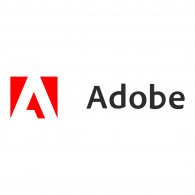Maximize Sales Momentum with the Right One-Stop Sales Enablement Platform
 Think about that last great deal you closed — the momentum you felt as you cruised from pitch to close with zero friction, zero hold-ups, and zero hurdles. It’s a total rush, and it’s totally good for business. This positive momentum has been tied to everything from increased confidence to seeming more competent to overall professional success. Very simply, high-performing Salespeople experience positive momentum more frequently — and are more likely to ride it until the deal is done.
Think about that last great deal you closed — the momentum you felt as you cruised from pitch to close with zero friction, zero hold-ups, and zero hurdles. It’s a total rush, and it’s totally good for business. This positive momentum has been tied to everything from increased confidence to seeming more competent to overall professional success. Very simply, high-performing Salespeople experience positive momentum more frequently — and are more likely to ride it until the deal is done.
And that has a big impact on business. Momentum-driven firms have been shown to deliver upward of 80% more shareholder value than their lagging-behind rivals.
Read More: How to Grow Your Customers Base During a Transition: Lessons from the Golden State Warriors
Building Momentum into Your Workflows
That said, while this momentum is highly internalized, it doesn’t necessarily start (and is rarely powered by) the individual seller. To generate and maintain that mission-critical momentum, you need to enable Sales teams to move forward with as few pauses as possible. The less they have to stop and wait, the more momentum they’ll maintain, and the more Sales they’ll generate.
It sounds simple enough, but many businesses aren’t connecting the dots. Instead, they’re integrating Sales Enablement tools that slow processes and bust up momentum even more. Although it’s great to have a CRM, e-signature capabilities, and an internal communication tool, if you have three different tools or apps to represent those three functions, it’s going to kill your momentum.
Your sellers don’t want to hop into their CRM to check on a contract, Slack their deal desk analyst for an update, head back to the CRM to download the agreement, then email it to the client for an e-signature using yet another tool.
Each step takes time and at each step, there’s the potential for technology to drop the ball — or the contract: the client has to set up a new account to e-sign, the PDF is too big to email, or the team is having trouble reviewing on their iPhones.
It’s, again, a problem, and it’s a common one. According to a Forrester Total Economic Impact study commissioned by Adobe, even reducing manual signature steps saves employees an average of 1 ½ hour per transaction.
Read More: Top 10 Appointment Scheduling Software For Every Business
Building a Consistent, Unified Platform for Your Sales Team
To avoid being that time-waster, steer clear of one-off solutions that, ultimately, make the path to the final signature more challenging than it needs to be. Instead, focus on holistic Sales Enablement solutions that bring all the pieces together. The solution you choose or build should hit these key marks to ensure your sales team will be all-in:
1. Mobile
A unified solution should empower sales teams and their prospects to work on, send, and track quotes and agreements from anywhere, anytime, all with a few quick clicks on their smartphone.
2. Centralized Template Library
There’s no reason to go back and forth with Legal and Sales Enablement and Business Operations and, seemingly, every single person in every single department just to talk about a standard Sales agreement. Too often, though, that’s the process, and something that could have been tweaked slightly or sent as it now takes hours or even days, threatening the deal with every minute that ticks by.
Don’t be that business. Instead, have business contracts and forms at the ready (including mobile-ready) to ensure standardization, simplicity, and speed.
3. Automation
Just like there’s no reason to wait for Legal to bless a standard purchase agreement, there’s no reason to waste your or your sellers’ time handling administrative tasks — collecting and merging data, for example, and collecting and logging signatures automatically from forms into your CRM, without rekeying.
These are just some of the ways to integrate automation into your sales processes and workflow. The more you can automate effectively, the more time your team will have to do what only they can do: close.
4. Work Where You Work
Chances are your organization has some existing CRM in place. If that’s the case, there’s likely no need to bust up the learning curve and force a new way of doing things. Instead, manage and store documents in an existing CRM system that your Sales team is already familiar with. No need to download or install the software.
5. Monitor the Pipeline
Once your Sales Enablement tool is moving forward, it’s time to start monitoring the pipeline for real-time visibility into every deal for accurate forecasts. This is when you better see who is coming to your site — and why.
Think about it. Why make Salespeople get an e-signature in one app and message in another? Why make Sales email contracts to Legal for review, only to get a scanned red-line back from the team?
As a business owner or leader, you’ll be able to make reporting situations like this much simpler. Keep detailed notes and make sure relevant information isn’t siloed.
More importantly, your next-generation Sales team — your latest Gen Z and young Millennial sellers — expect these resources, and they expect you to deliver on day one. To them, these resources help them keep pace with their busy lifestyles and enable them to achieve better balance as they keep moving deals forward — whether from the road, the conference room, or, even, poolside.
Read More: How Better Mobile Onboarding Can Help Banks Target Millennials and Gen Z




















